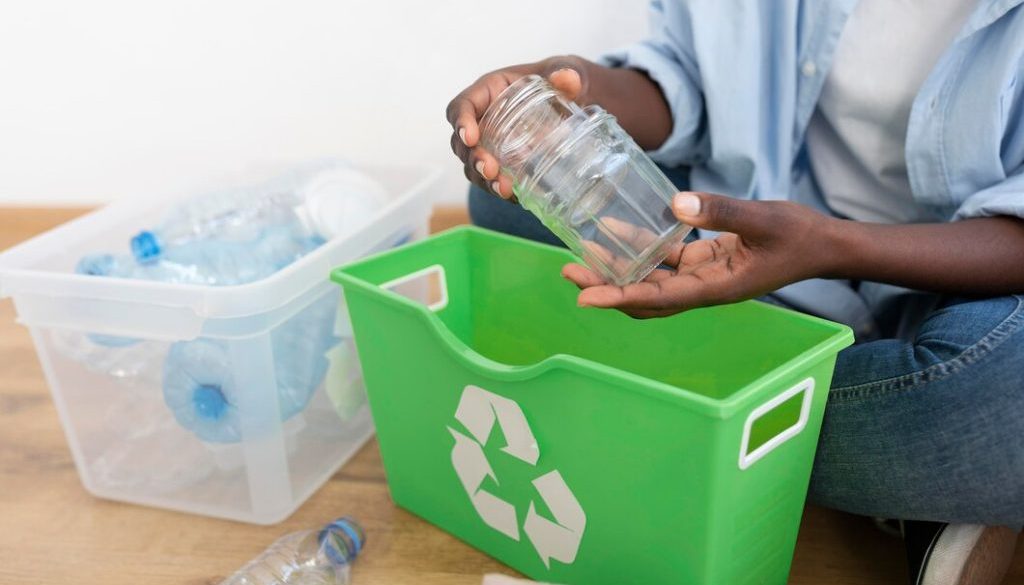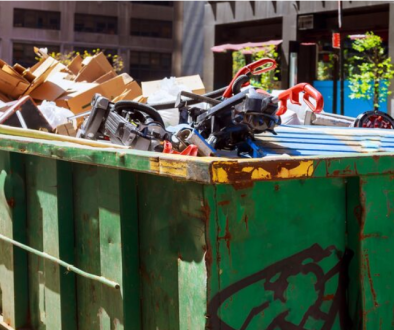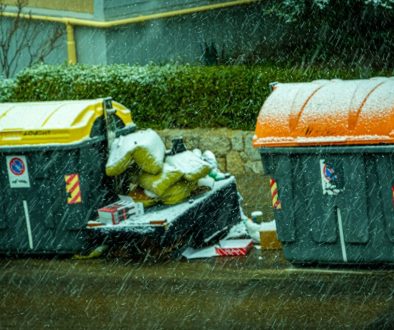Recycling at home is more than just a conscientious decision; it’s a commitment to preserving our environment for future generations. Here at Enviro Skip Hire, we believe that understanding the basics of home recycling plays a vital role in making that commitment a reality. Knowing not only what can be recycled but how to recycle effectively helps in significantly reducing the amount of rubbish that ends up in landfills, reducing environmental harm.
Our goal is to equip you with the knowledge and practical tips you need to efficiently sort and recycle everyday waste. This will ensure that recyclable materials are processed and returned back into the cycle, helping to conserve natural resources and reduce greenhouse gas emissions.
As we delve into this topic, we share insights into which common household items are recyclable, the importance of thorough sorting, and how to involve your family and community in sustainable practices. Embark on this journey with us to nurture a greener, cleaner earth by mastering the art of recycling at home.
Understanding the Basics of Recycling at Home
Recycling at home starts with a simple but crucial concept: not all waste is created equal. Identifying which materials are recyclable and which are not is foundational to effectively reducing your household’s contribution to landfill waste. Most would agree that the recycling process can seem complex, but it genuinely begins with basic separation: grouping similar materials together. Materials such as paper, plastics, glass, and metals can often be recycled, provided they are cleaned and sorted correctly.
Initiating proper separation habits takes minimal effort but requires consistent practice. One effective method is to set up designated containers within the home. Labelling these clearly with the type of waste they should contain educates everyone in the household and reduces the chances of cross-contamination, which can render some recyclables useless. By ingraining these simple practices, we enhance our capacity to manage waste more sustainably, ensuring that a significant portion of what we discard is repurposed and reused.
Common Household Items You Can and Can’t Recycle
Navigating through what you can and can’t recycle is crucial for effective waste management. Generally, you can recycle materials like paper, cardboard, glass bottles, and most plastics – these are the staples of household recycling. However, it’s not just about throwing these into a bin; certain conditions, such as cleanliness and type, play a role. For example, pizza boxes tainted with grease cannot be recycled, despite being cardboard, due to contamination which disrupts the recycling process.
On the other hand, items like plastic shopping bags, polystyrene foam containers, and broken glass typically cannot be recycled through standard council services and require specialised disposal methods. Understanding these distinctions clears up common misconceptions and significantly bolsters our recycling efforts. Moreover, familiarising oneself with the local recycling regulations helps, as these policies can vary significantly by location. We encourage you to stay informed and compliant to make your recycling practice as effective as possible.
Practical Strategies to Maximise Your Recycling Efforts
To truly maximise your recycling efforts, strategic planning and smart execution are key. We recommend setting up a clear and user-friendly recycling station within your home. This designated area should have separate containers for different recyclables—paper, plastics, metals, and glass. Label each container clearly with what should be thrown in it to avoid confusion and contamination. Additionally, placing a general waste bin nearby discourages improper disposal of non-recyclables.
Another strategy involves compressing recyclables when possible. For instance, crushing cans and flattening cardboard boxes create more space in your recycling bins, allowing you to fit more recyclables. This reduces the frequency of disposal and maximises the use of each skip. Remember, efficient recycling starts with effective sorting and minimisation of space taken by each item. Such practices not only make recycling more manageable but also significantly increase the sustainability of these efforts.
Engaging Family and Community in Recycling Practices
Encouraging recycling within the family and broader community can transform a simple environmental act into a powerful movement. Start by educating your family about the importance of recycling and the specific processes involved. Making this a part of daily life, perhaps through fun learning activities for children, reinforces positive habits. For community engagement, organising local recycling challenges or informative workshops can spark interest and participation.
Additionally, collaborating with local schools, councils, and businesses to promote recycling can have substantial impacts. We can inspire community-wide recycling initiatives, such as sponsored recycle days or competitions to see which area can recycle the most. This not only enhances community spirit but also promotes a culture of sustainability. By fostering an environment where recycling becomes second nature, we collectively enhance our local environment.
Conclusion
Embracing and promoting recycling practices within your household and extending these to the wider community is instrumental in contributing towards a healthier planet. Remember, every piece of rubbish correctly sorted and recycled counts towards a larger, cumulative effect that benefits all of us.
Here at Enviro Skip Hire, we are committed to supporting you with skips and recycling solutions tailored to your needs. Let’s continue making strides in our recycling efforts together, for a cleaner and greener tomorrow. Contact us today to learn more about our skip hire services!




